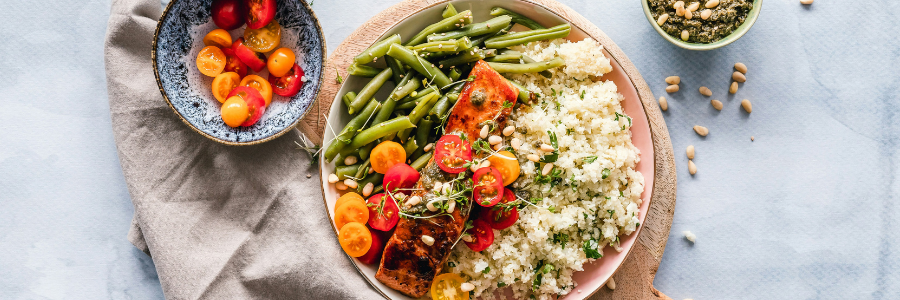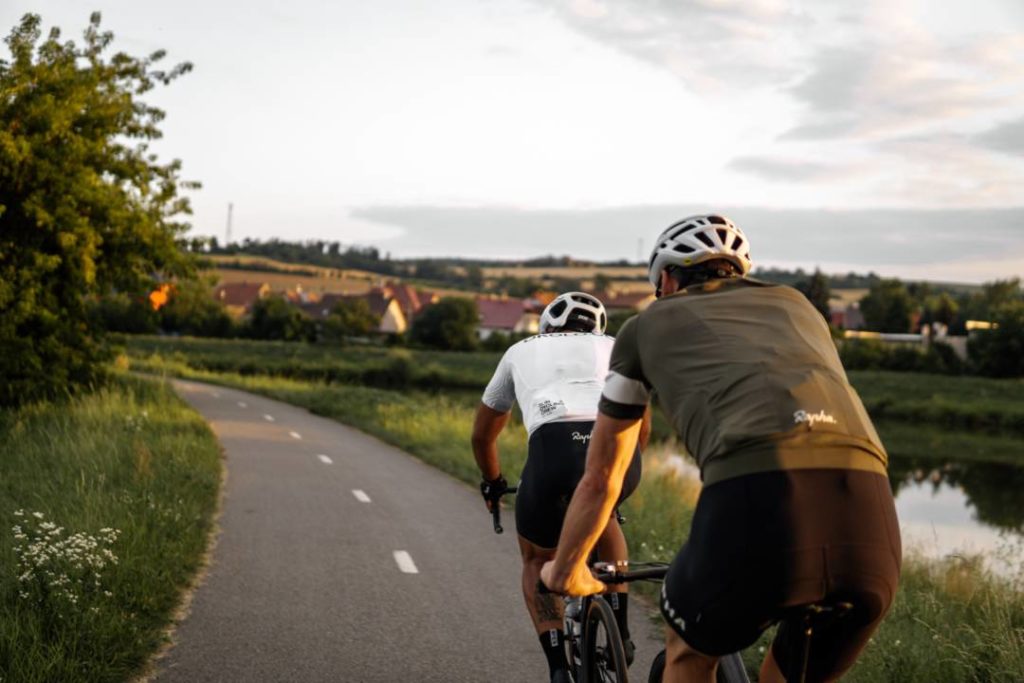An effective nutritional planning strategy is essential to maximize performance during a cycling season. Whether you’re a seasoned amateur or a competitive cyclist, adapting your diet to each phase of training and competition ensures sustained energy, optimal recovery, and injury prevention.
In addition to enhancing physical performance, proper nutrition contributes to the cyclist’s overall well-being, improves focus, stabilizes mood, and strengthens the immune system. Proper meal planning helps better manage training loads, reduce the risk of overtraining, and achieve steady progress throughout the year.
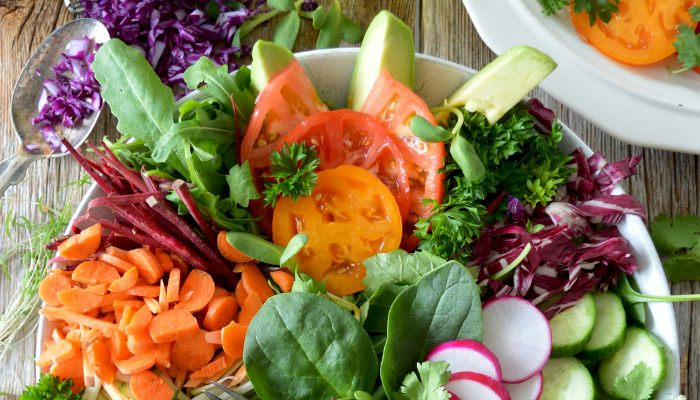
Phases of a Cycling Season
Throughout a cycling season, various phases are experienced, each with its own physical and physiological demands. Below are the key nutritional characteristics for each:
Base Phase
This stage is characterized by long, low-intensity sessions aimed at building solid aerobic capacity. During this phase, nutrition should focus on providing enough carbohydrates to support training volume, along with adequate protein to preserve muscle mass. Healthy fats should also be included to provide sustained energy and support hormonal function.
Build Phase
As training intensity increases, physical wear also rises. Therefore, it is necessary to increase the intake of carbohydrates and proteins. It is also recommended to plan energy snacks both before and after workouts to ensure good recovery and performance.
Peak Phase
As competition approaches, energy demands reach their peak. Here, it is essential to maximize carbohydrate intake to maintain top performance. Hydration should also be carefully managed, using isotonic drinks and electrolytes. Pre-competition meals should be high in carbohydrates, easy to digest, and low in fiber to prevent discomfort.
Recovery Phase
Once the season ends, the training load decreases. Therefore, it is advisable to reduce total caloric intake while maintaining an adequate amount of protein to preserve muscle mass. This stage also allows for reviewing eating habits and preparing the body for the next training cycle.
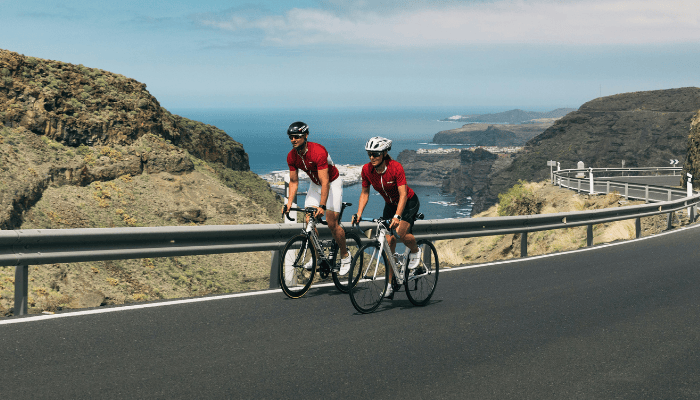
Energy Requirements and Strategic Nutrition
A proper distribution of macronutrients is key to meeting the demands of each phase. It’s not just about the quantity, but also about the timing of food intake to optimize its effect on performance and recovery.
| Phase | Carbohydrates (g/kg/day) | Protein (g/kg/day) | Fats and Others |
| Base | 4-5 | 1.2-1.5 | Healthy fats |
| Build | 5-7 | 1.6-1.8 | Pre/post-workout snacks |
| Peak | 8-10 | 1.8 | Hydration, pre-race meals |
| Recovery | Caloric reduction | 1.5 | Improved eating habits |
Importance of Hydration and Recovery
Hydration is one of the most critical yet often overlooked aspects of cycling performance. Even mild dehydration can result in a significant decrease in power and focus. It is advisable to drink water before exercise, stay hydrated during activity—especially in hot weather—and replenish fluids with electrolyte-rich drinks if the effort exceeds 90 minutes.
Moreover, the immediate post-workout period is crucial for recovery. Consuming fast-absorbing carbohydrates and protein helps restore muscle glycogen and repair damaged tissue. This combination, within the 30 to 60 minutes after exercise, speeds up recovery and prepares the body for the next session.
Practical Menu for a High-Demand Day
| Meal | Suggested Menu |
| Breakfast | Oatmeal with banana, honey, and nuts + coffee |
| AM Snack | Banana + isotonic drink |
| Post-Workout | Banana smoothie with protein + avocado toast |
| Lunch | Whole wheat pasta with chicken, steamed vegetables, and olive oil |
| Afternoon Snack | Natural yogurt with honey and walnuts |
| Dinner | Quinoa salad with salmon, cherry tomatoes, and spinach |
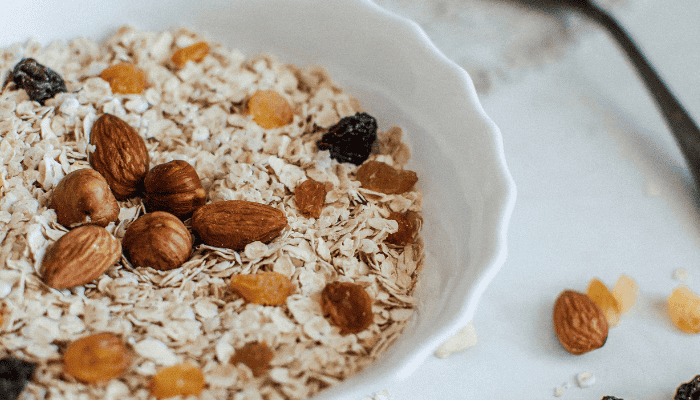
Conclusion
Nutritional planning in cycling is not a luxury, but a necessity for those aiming to improve performance and take care of their health. Each training phase requires specific dietary adjustments, from gradually increasing carbohydrate intake to reducing calories during rest periods. Proper hydration and post-workout recovery are key components of this process.
Beyond athletic performance, good nutrition helps prevent injuries, strengthens the immune system, and supports long-term sustainable sports practice. Therefore, it is highly recommended to consult a sports nutritionist to develop an individualized plan aligned with each cyclist’s goals, body, and routine. Eating well is, without a doubt, one of the best investments an athlete on two wheels can make.
BKOOL is the most complete cycling simulator on the market, try it FREE for 7 days!
 Go to BKOOL
Go to BKOOL
